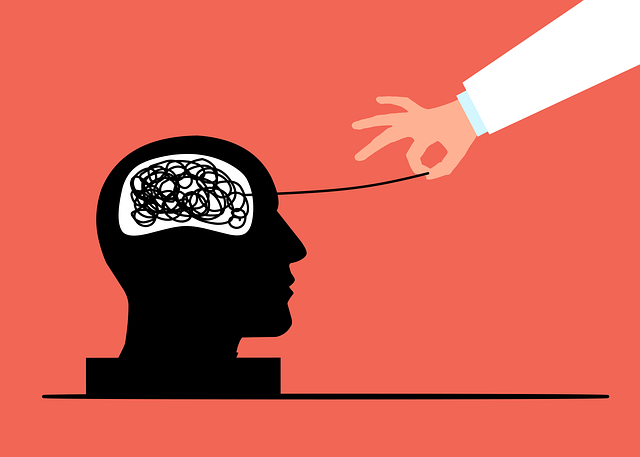School pressures and academic expectations contribute to growing teen anxiety, manifesting as stress, physical symptoms, and fear. Mental health therapy for adolescents, particularly cognitive-behavioral therapy (CBT), offers effective coping strategies, resilience building, and improved well-being to navigate this challenging phase. Tailored approaches addressing social dynamics and peer relationships enhance overall mental health.
School pressure and academic stress significantly contribute to teen anxiety, a growing concern in modern adolescence. This article delves into the intricate relationship between educational demands and anxiety disorders among youth. We explore how intense academic expectations can trigger or exacerbate anxiety symptoms, affecting overall well-being. Through identifying specific stress triggers and examining various therapeutic interventions, we offer insights into effective strategies for mental health therapy targeted at adolescents grappling with school-related anxiety.
Understanding Teen Anxiety in School Settings
Teen anxiety in school settings is a growing concern, as academic pressures and expectations can significantly impact young minds. Adolescence is already a period of significant emotional development and transition, and when combined with the demands of education, it can create a complex interplay of stress and anxiety. Many teens struggle silently with feelings of worry, fear, and unease, often stemming from concerns about performance, social acceptance, and meeting parental or societal expectations.
School-related anxiety can manifest in various ways, from excessive homework stress to fears of public speaking or exams. For some, it may lead to avoidance behaviors, while others might experience physical symptoms like headaches, stomach aches, or insomnia. Accessing mental health therapy for adolescents is crucial in these situations, offering strategies to manage and overcome these anxieties. Through professional support, teens can develop coping mechanisms, build resilience, and enhance their overall well-being, ensuring they navigate this challenging phase with greater ease.
The Role of Academic Pressure in Anxiety Development
The role of academic pressure in anxiety development among teenagers is a significant aspect often overlooked in discussions about mental health. In today’s competitive educational landscape, students face mounting expectations to excel academically, which can lead to heightened stress levels. The constant push for good grades, college admissions, and high-achieving peers contribute to a culture where teen anxiety flourishes. This pressure can manifest as test anxiety, fear of failure, or even social anxiety related to academic performance. Many adolescents struggle to cope with these emotions, leading to potential long-term mental health concerns.
Mental health therapy for adolescents plays a crucial role in addressing this issue. Through therapeutic interventions, teens can learn coping strategies to manage academic stress and anxiety effectively. Therapies like cognitive-behavioral therapy (CBT) have proven successful in helping young individuals identify and challenge negative thought patterns associated with schoolwork, thereby reducing anxiety symptoms. By providing a safe space to discuss fears, therapists empower teenagers to navigate their academic pressures with increased resilience and self-awareness.
Identifying Stress Triggers in Adolescent Lives
Adolescents often face a myriad of stressors that can contribute to anxiety, making it essential to identify their unique triggers. School pressure and academic expectations play a significant role in shaping their daily experiences. From stringent deadlines to high-stakes exams, these demands can create an atmosphere of constant stress. Moreover, the social dynamics within schools, including peer relationships and societal pressures, further add layers of complexity.
Understanding these triggers is crucial for providing effective mental health therapy for adolescents. Therapists can help teens recognize and manage stressors by teaching coping mechanisms tailored to their individual needs. Through this process, adolescents gain tools to navigate academic challenges, fostering resilience and improved mental well-being.
Effective Therapy Approaches for Relief
Addressing teen anxiety related to school pressure requires a tailored approach, and one effective strategy is mental health therapy for adolescents. Cognitive Behavioral Therapy (CBT) has proven particularly useful in teaching young individuals to identify and change negative thought patterns and behaviors contributing to their anxiety. This form of therapy equips them with valuable coping mechanisms to manage stress effectively.
Additionally, mindfulness-based interventions are gaining traction as a holistic method to alleviate academic stress. These techniques encourage adolescents to focus on the present moment, reducing the weight of past regrets or future worries. By combining cognitive restructuring and mindfulness practices, therapists can offer powerful tools for teens to navigate their educational challenges with enhanced resilience and improved mental well-being.
School pressure and academic stress can significantly contribute to teen anxiety, yet understanding these factors and implementing effective strategies can foster resilience. By identifying individual triggers through open communication and adopting evidence-based therapies like cognitive behavioral therapy (CBT) or mindfulness practices, adolescents can learn to manage their mental health effectively. Mental health therapy for adolescents plays a pivotal role in navigating academic challenges, promoting emotional well-being, and ensuring a brighter future.
